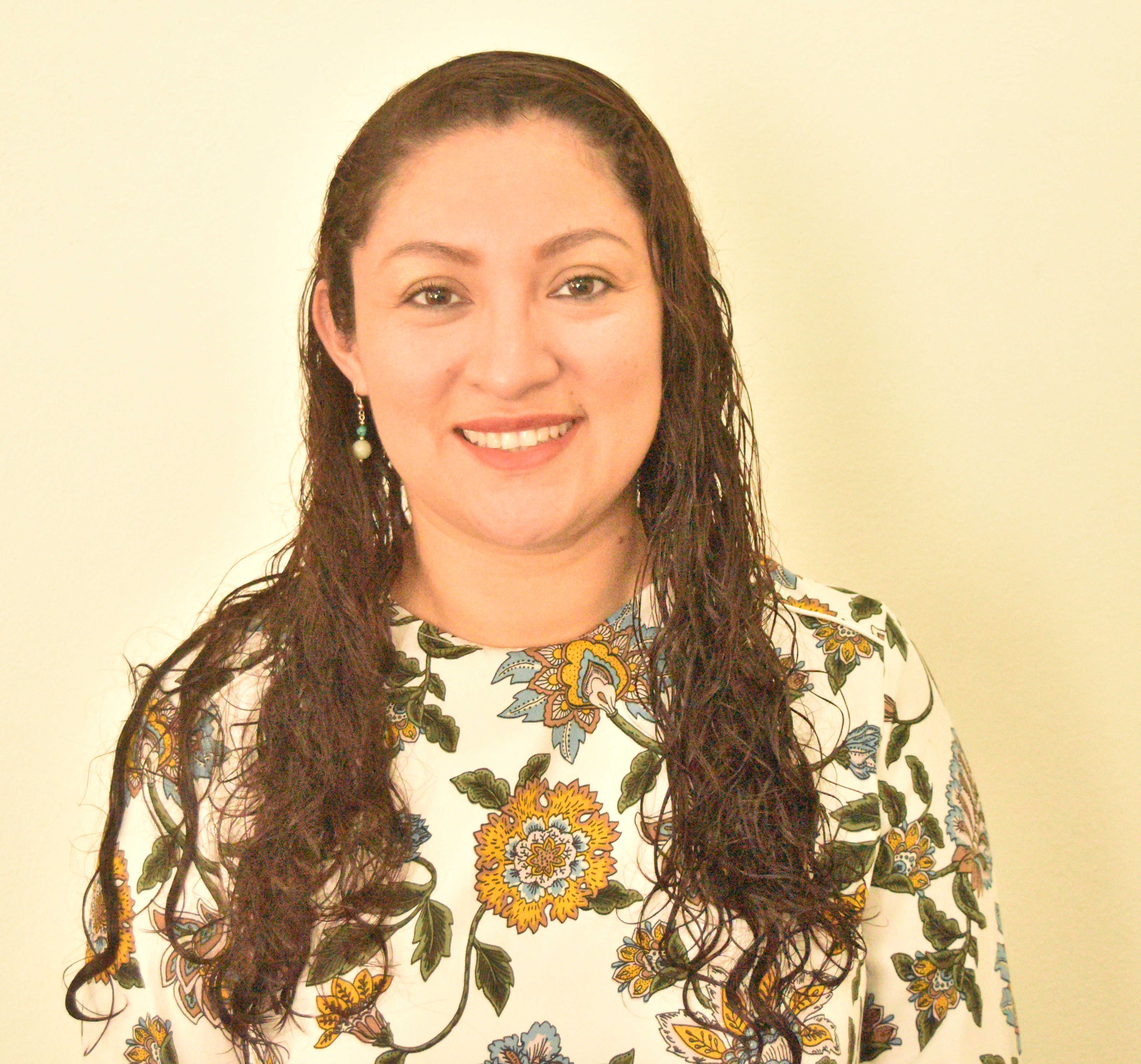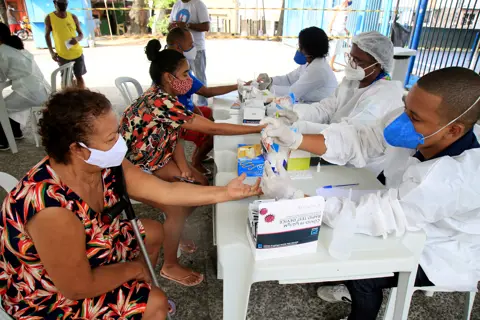
While COVID-19 vaccinations are picking up speed in many wealthy countries, citizens of lower-income countries still face a long wait. In areas of pent-up demand, the supply of substandard and falsified vaccines is growing. Could vaccine equity help mitigate the risk of compromised products?
It has been more than a year since the SARS-CoV-2 virus outbreak was declared a pandemic by the World Health Organization (WHO). Around the world, normal life was upended in the face of the new disease caused by the virus, COVID-19, with a worryingly high fatality rate and no known cure. Alongside several Emergency Use Authorisations (EUAs) issued by National Regulatory Authorities (NRAs) for experimental COVID-19 treatments, the race for a vaccine began.
The emergence of vaccine candidates prompted countries to improve their readiness for COVID-19 vaccine introduction. WHO and other NRAs began granting EUAs for COVID-19 vaccines, a momentous event in science history. And as the strong results of the early vaccination programmes became obvious, expectations for COVID-19 vaccine deliveries grew around the world. But the allocation of doses began to hit challenges as vaccine manufacturing capacity became overwhelmed. Now, questions about the equitable worldwide distribution of vaccines grow louder, and many countries still wait on the deliveries that would allow them to begin vaccinating their people.
During this pandemic, the challenge of tackling substandard and falsified (SF) medical products has grown. Unauthorised products have been promised as COVID-19 remedies or cures to populations that yearn a return to normal. The introduction of COVID-19 vaccines has been taking place against this backdrop, and the unmet demand for vaccines, along with continued delivery delays, have created a fertile environment for SF COVID-19 vaccines to arise.
At the end of the first quarter of 2021, the WHO resource “COVID-19 - Landscape of novel coronavirus candidate vaccine development worldwide” listed 83 vaccines in clinical development. Several of these have made their way to the Americas, such as AstraZeneca, CanSino, CoronaVac, Janssen, Moderna, Pfizer-BioNTech, Sinovac, and Sputnik V. The United States has granted EUA to Pfizer-BioNTech COVID-19 Vaccine, Moderna COVID19 Vaccine, and Janssen COVID-19 Vaccine. Brazil has granted EUA to AstraZeneca-Oxford, Covishield, Pfizer-BioNTech, and Sinovac. Mexico has provided EUA to AstraZeneca-Oxford, CanSino, Pfizer-BioNTech, Sinovac, and Sputnik V. Other countries do not provide national EUAs but rely on WHO EUAs. Although there are numerous vaccines being developed, a limited number have been authorised for emergency use.
While the Americas have confirmed more than 55 million cases of the virus, the number of vaccine doses arriving to the region remains insufficient to attain herd immunity. Furthermore, the delivery of doses to the Americas has not been proportional – countries like the United States have administered over 100 million doses, while others have not yet received any doses. While many countries await the arrival of the COVAX vaccines, others like Barbados opted to engage in bilateral agreements with countries such as India to receive their first doses. By the end of the first quarter 2021, data from COVAX indicated that over 2.4 million doses had arrived in 13 countries in the Americas, revealing that improved access to the vaccines needs to be achieved in the region.
Global data show 54 incidents of COVID-19 vaccines being substandard, falsified, or diverted from the legal supply chain, according to the report issued by the Infectious Disease Data Observatory on 18 March 2021.

Some of the reported incidents include the identification of falsified batches of vaccines, the sale of falsified vaccines via the internet, theft of authentic COVID-19 vaccines from authorised vaccination facilities, and vaccine cold-chain breakdown. Of particular concern, WHO has issued a medical alert on a falsified lot of Pfizer-BioNTech in Mexico. In response to the problems, Latin American countries have embarked on media campaigns to fight these compromised vaccines and to reiterate to the public that legitimate vaccines are only being administered through the health authorities. Other sanitary alerts in the Americas include unauthorised commercialisation of COVID-19 vaccines via the internet.
SF vaccines pose a threat to any region, country, or person, increasing the risks of adverse events of special interest (AESIs) and adverse events following immunisation (AEFIs). Colloquially, people know AESIs and AEFIs as side effects, such as fever, muscle pain, and headache among others, which can be associated with authentic vaccines. However, SF vaccines available via unauthorised channels in the supply chain can pose greater risks such as hospitalisation and death. They can also give a false sense of security to citizens and can contribute to a wider spread of the virus as persons administered SF vaccines may not present the required level of protection against COVID-19.
While vaccine hesitancy is well recognised as posing a threat to the success of public vaccination programmes, less well known, but equally concerning is the threat posed by individuals or companies willing to take advantage of the demand for vaccine access. Further studies on SF COVID-19 vaccines will be required to assess the specific impact of these products on the health of the population. At this time, enforcement agencies like Interpol have called for law enforcement to remain vigilant on the issue of SF COVID-19 vaccines circulating in the markets and sought joint efforts along with health authorities. Clearly, SF COVID-19 vaccines are a potential health risk to the population.
At the same time, a call for vaccine equity has been made by countries, agencies, and other organisations in the region. The deployment strategy that stands out in these countries includes a phased vaccination approach. This translates into persons waiting in line for their turn. Beyond this, the time lag that occurs when countries wait to receive sufficient vaccines for their population can become lengthy. The vaccines are administered mostly by the health authorities and are free of cost, but the logistics and coordination to reach from urban to rural areas may also contribute to the added wait. Furthermore, the cold chain must be maintained to prevent compromising the quality of the vaccines. Vaccines also need to be stored in safe locations where security can be provided, such as surveillance cameras, to prevent the diversion of these products and reduce the circulation of substandard vaccines in the market. These are just a few critical aspects of the deployment process.
But if there is increased access to COVID-19 vaccines, the wait can shorten and the demand can be attenuated, reducing the incentives for the supply of SF vaccines. Furthermore, if health authorities administer doses to their people at a higher rate, they can reduce the risk of people being exposed to SF vaccines. Expanded access of the vaccine from public to private sector can also increase vaccination coverage and would be viable when manufacturers increase production and reach to all countries.
Time is valuable and vaccine access is essential to move towards a post-COVID19 era. May history remind us that vaccines don’t work, vaccinations do.
Official WHO advice to regulatory authorities and the public
From the WHO medical product alert of 26 March 2021:
WHO requests increased vigilance within the supply chains of countries and regions likely to be affected by these falsified products. Increased vigilance should include hospitals, clinics, health centers, wholesalers, distributors, pharmacies, and any other suppliers of medical products.
All medical products must be obtained from authorized/licensed suppliers. The products’ authenticity and physical condition should be carefully checked. Seek advice from a healthcare professional in case of doubt.
Want to hear more?
Tune in to UMC's Drug Safety Matters podcast for an audio version of this article. Or listen to the episode right here...
Read more
US Food & Drugs Administration, “COVID-19 Vaccines”, March 2021.
Disclaimer: Responsibility for the information and views expressed in Uppsala Reports articles lies entirely with the authors. Articles do not necessarily reflect the policies or positions of Uppsala Monitoring Centre.




